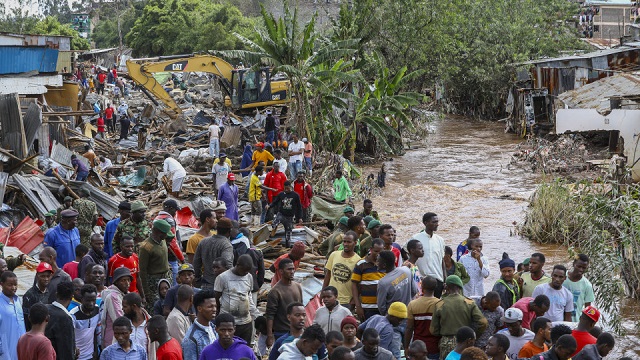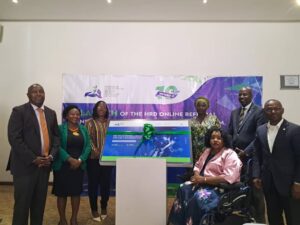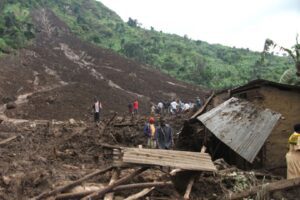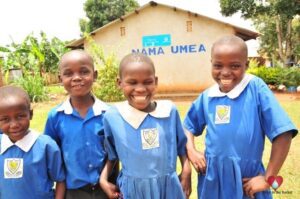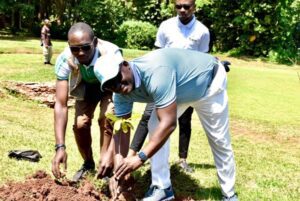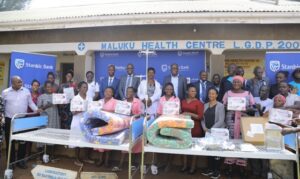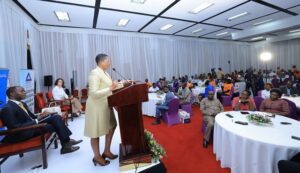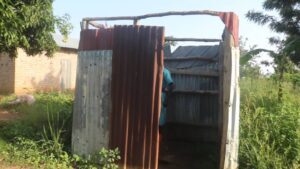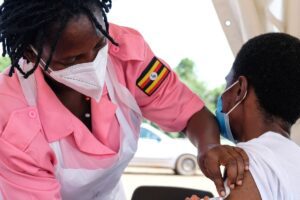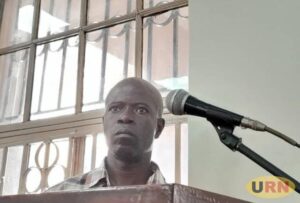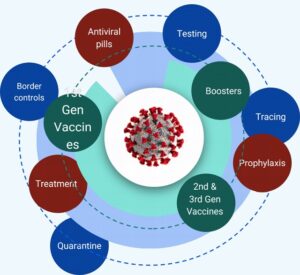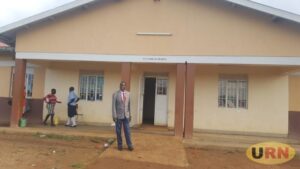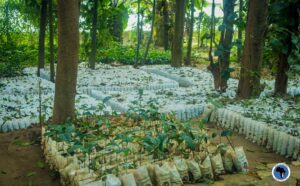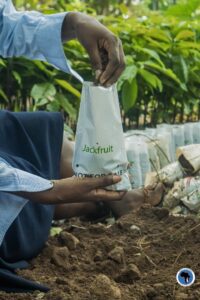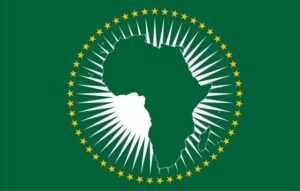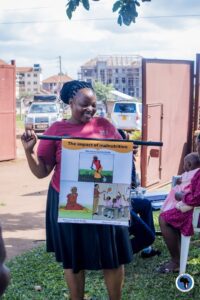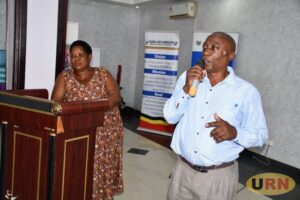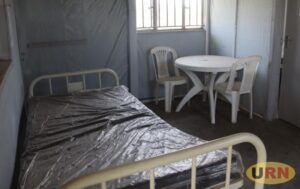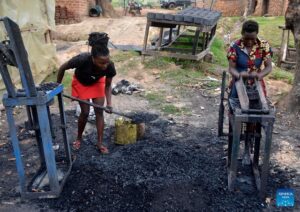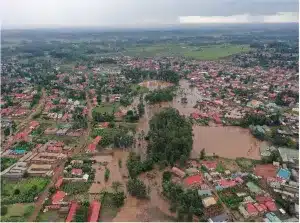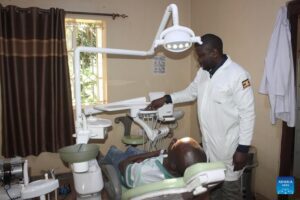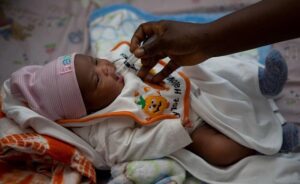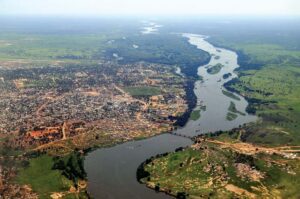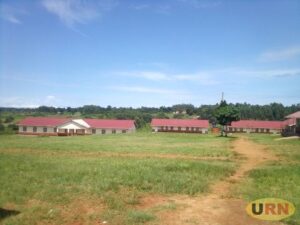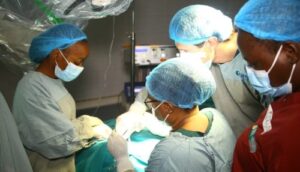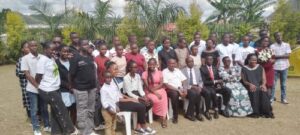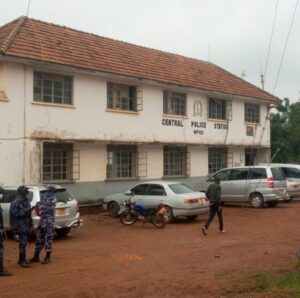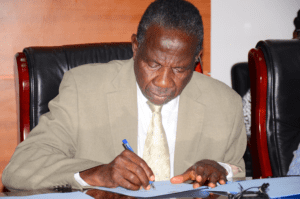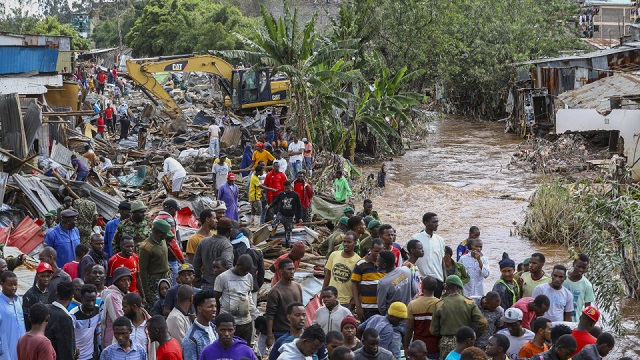

Cyclone Hidaya was the first time Kenya experienced a cyclone as they brace for new normal of extreme weather
ANALYSIS | TONY MALESI | Kenya and many other African nations are grappling with a harsh reality: extreme weather events are becoming the norm. Once predictable weather patterns have been disrupted, leading to a dangerous cycle of droughts, floods, and cyclones. These realities get highlighted as the countries grapple with both the aftermath and scare of Cyclone Hidaya immediately after deadly droughts and floods.
This was the first time Kenya experienced a cyclone, however, the phenomenon has of late been common in the West Indian Ocean region along the eastern and southern Africa coastline.
While Kenya only experienced mild effects of Cyclone Hidaya, Tanzania and its islands bore the brunt of the storm when the cyclone made landfall on May 4, 2024, as reported by the Kenya Meteorological Department (KMD) and the Tanzania Meteorological Authority (TMA).
“Current observations indicate that Tropical Cyclone Hidaya has made landfall on the coast of Tanzania. However, there is another depression developing behind it, which the department is monitoring closely,” the KMD said in a statement on May 4.
The TMA also confirmed the presence of Cyclone Hidaya in a statement, saying it had an air pressure of 985 hectopascal (hPa) and a wind speed of 120 kilometres per hour.
Confirming the three-day extreme weather event, the IGAD Climate Predictions and Applications Center (ICPAC) said in a statement: “Tropical Cyclone Hidaya is currently active over the Indian Ocean, north of Madagascar and is predicted to make landfall along Tanzania’s coast late on Friday to the south of Dar-es-Salaam.”
Why Cyclone Hidaya’s impact was mild in Kenya
The developed over the south Indian Ocean, east of Tanzania and northeast of Comoros Islands on May 2, 2024. Director of Kenya Metrological Services, David Gikungu explained that Kenya’s position along the equator played a role in weakening the impacts of the tropical cyclone.
“Following its landfall at Mafia Island on May 4, Hidaya lost its strength. The remnants of the rain clouds that accompanied the cyclone were observed to weaken and spread out to various areas of the southern region of Tanzania,” said Gikungu, who is also the permanent representative of Kenya with the World Meteorological Organization.
According to KMD, tropical cyclones typically develop at latitudes between 5° and 30° North or 5° and 30° South of the equator in tropical oceans. They do not form within 5° of the equator because of a lack of sufficient Coriolis force, an apparent force caused by the earth’s rotation.
KMD also added that it is also because of the Hadley Cell, at which the winds deflate southward or northward.
In the case of Kenya, the country lies within Latitude 4° North and South, hence it is safe from deadly tropical cyclones. According to Gikungu, Kenya may only feel the impact of the spinoff of winds from cyclones that may cause rainfall.
However, he admitted that as the first-ever recorded cyclone to hit Kenya, Hidaya serves as a stark reminder of the changing climate patterns affecting east Africa.
Recent history of cyclones in Africa
Alvaro, the first cyclone of 2024, made landfall near Morombe in Madagascar on January 1, 2024. Over 16,100 people were affected, including five deaths and 8,400 people displaced by the disaster.
In 2000, Madagascar, which bears the biggest brunt of cyclones in Africa, experienced back-to-back cyclones Eline and Gloria, which killed around 130 people. The country yet again experienced the wrath of Cyclone Gafilo in March 2004, which took the lives of over 170 citizens.
In 2013, Somalia experienced a deadly Deep Depression ARB 01, which left over 130 people dead. Mozambique, too, has had its fair share of deadly cyclones, including Cyclone Dineo which struck in 2017, killing over 250 citizens. In 2019, the country experienced yet another cyclone named Idai, which spread to Malawi and Zimbabwe. The impacts remain unknown due to gaps in reporting and data collection.
Then there was Cyclone Kenneth, which struck Mozambique the same year, leading to the death of over 600 people. In 2023, Cyclone Freddy struck Malawi, Mozambique, Madagascar and South Africa, killing over 500 people.
In the case of Cyclone Hidaya in Kenya and Tanzania, early warning systems proved relatively effective and handy. Unlike the case with previous cyclones in the West Indian Ocean region / eastern and southern African coastline, where hundreds of lives were often lost, Hidaya was highly publicised by the governments of Kenya and Tanzania, with at-risk communities adequately forewarned of the impending danger.
The occurrence of Cyclone Hidaya, coupled with the prolonged droughts and deadly floods, raises concerns about the increasing frequency and intensity of extreme weather events in Kenya and across Africa.
Environmentalists and climate scientists have regularly warned about the impacts of climate change, including more frequent cyclones, erratic rainfall patterns, and rising temperatures. These extreme weather events not only pose immediate threats to human lives but also exacerbate existing challenges such as food insecurity, water scarcity, and displacement, according to environmentalist Edward Indakwa.
“One key reason that should make people worried about the changing climate in Kenya and Africa is the vulnerability of local communities to the impacts of extreme weather events. Many regions in Kenya, especially coastal areas and low-lying regions, are highly susceptible to floods and other climate-related disasters. The poor or lack of adequate infrastructure, early warning systems, and emergency preparedness further compounds the risks,” warns Indakwa.
The Nairobi-based environmentalist further stresses that the changing climate disproportionately affects marginalised communities, exacerbating existing inequalities and widening the gap between the rich and the poor. “Vulnerable people, including women, children and the elderly, are often the hardest hit by climate-related disasters. They face increased risks of displacement, food insecurity and health issues, and their safety ought to be prioritised,” said Indakwa.
Economists have warned that the economic implications of climate change are also significant and far-reaching, with the destruction of infrastructure, loss of livelihoods and disruption of agricultural activities imposing heavy costs on rural economies. Besides the immediate impacts, such events can have long-term consequences for economic development, hindering efforts to achieve sustainable growth and poverty reduction.
The mainstream consensus among experts is that addressing the challenges posed by climate change requires urgent and concerted efforts at the local, national, and global levels. Kenya and other African countries need to prioritise climate adaptation and resilience-building measures, including the development of robust early warning systems, investment in climate-resilient infrastructure and the promotion of sustainable agriculture practices.
More importantly, experts say developed countries, as culprits and major contributors to greenhouse gas emissions, have a moral obligation to provide financial assistance, technology transfer and capacity-building support to vulnerable countries like Kenya.
Author:: Bagombeka Job
Credit:: The Independent Uganda

